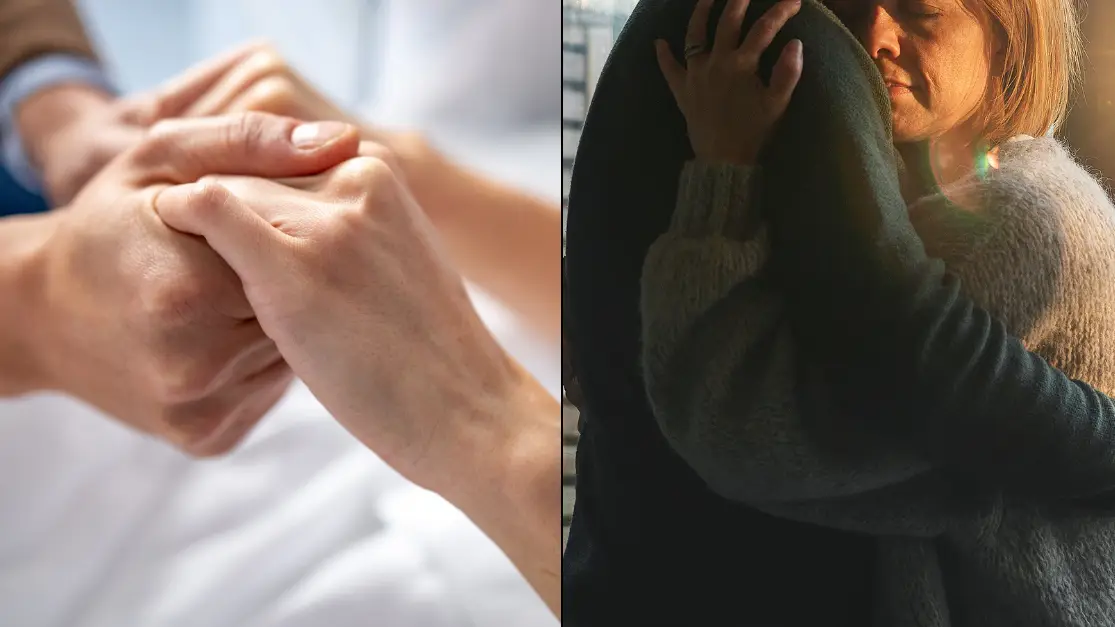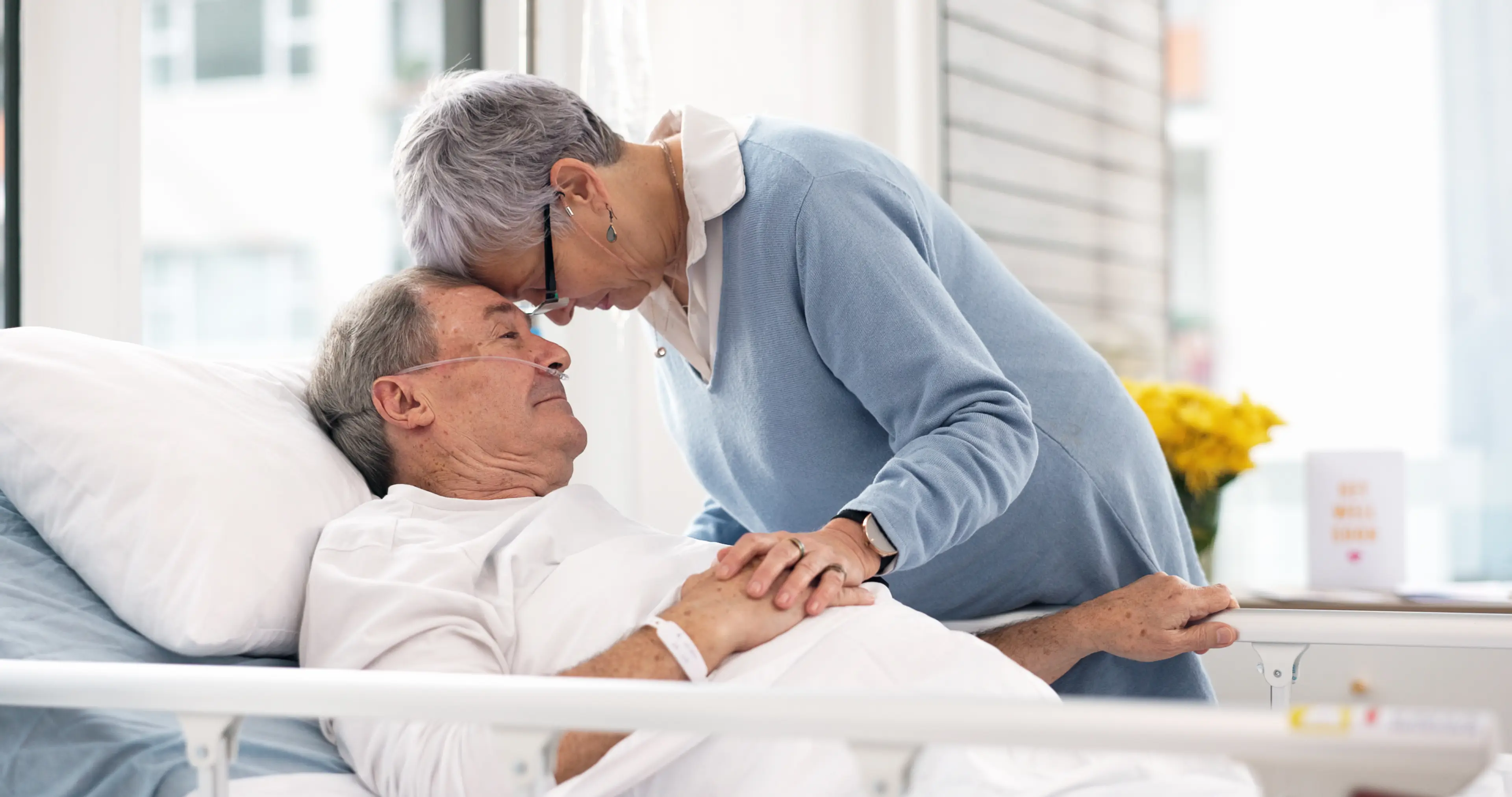
Experts have revealed the most important things you should say to a loved one who is about to die.
It's sadly a position which all of us are going to be in at some point in our lives, if we haven't been already.
Those final precious hours can feel as though they are closing in all too quickly, but despite the urgency many of us may find ourselves lost for words at what we want to say.
It's entirely understandable to feel overwhelmed or at a loss at what to say in circumstances like this, especially if this is your first time losing a loved one.
Advert
You may not know quite what to expect and how to approach the feeling of loss.
Fortunately there are many people who can help you and your loved one through the process, advising on what to say to them in their final days.

And no, it's not 'what did you leave me in the will?'
So what are some things that you can say and do to make this process as easy as it can be?
Narinder Bazen works as a death midwife in Maine in the US, guiding people and their families through the process of dying.
Bazen suggested getting clued up about what to expect when someone is on their way out.
She told the Wall Street Journal: "When you're educated about what will happen, that cuts your fears in half.
"When we create this feeling around the person that fosters deep, deep relaxation, we allow them to let go."
Hadley Vlahos is a hospice nurse in Biloxi, Mississippi and shared some of the messages you might be able to share.

He said: "You want them to hear what is important.
"Say: 'I love you.' 'Thank you.' 'I'll be OK.' If you have amends to make, 'I'm sorry' or 'I forgive you' will do."
It's perhaps worth remembering that your loved one may not be fully aware of their surroundings in their final days, so keeping things easy to understand will help to make sure you get through to them.
But if you are completely lost for words then don't worry, as just being there present with someone enjoying those last moments with them is also perfectly okay.
Bob Uslander, a palliative and end-of-life care physician in San Diego, California said: "Sometimes the best thing you can do is to sit quietly holding a person's hand and letting them feel your unwavering, loving presence."
